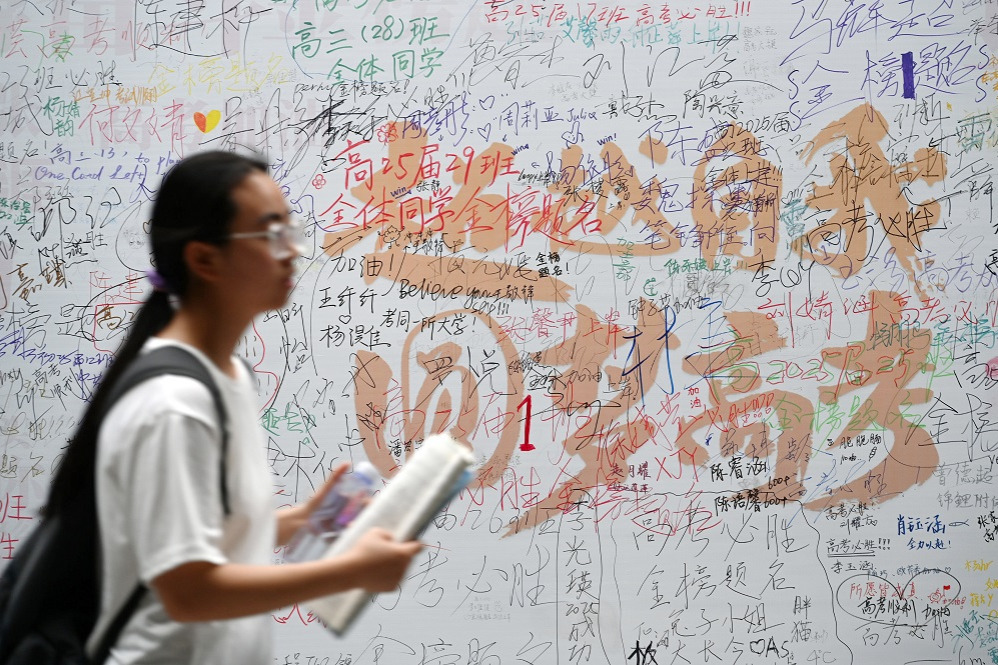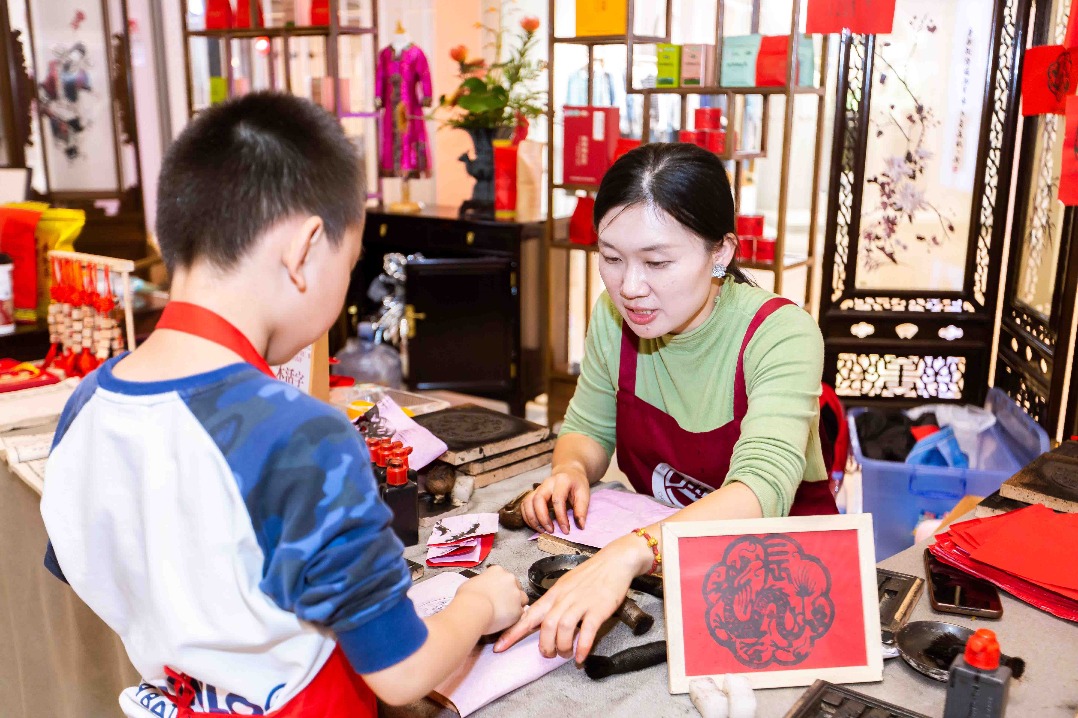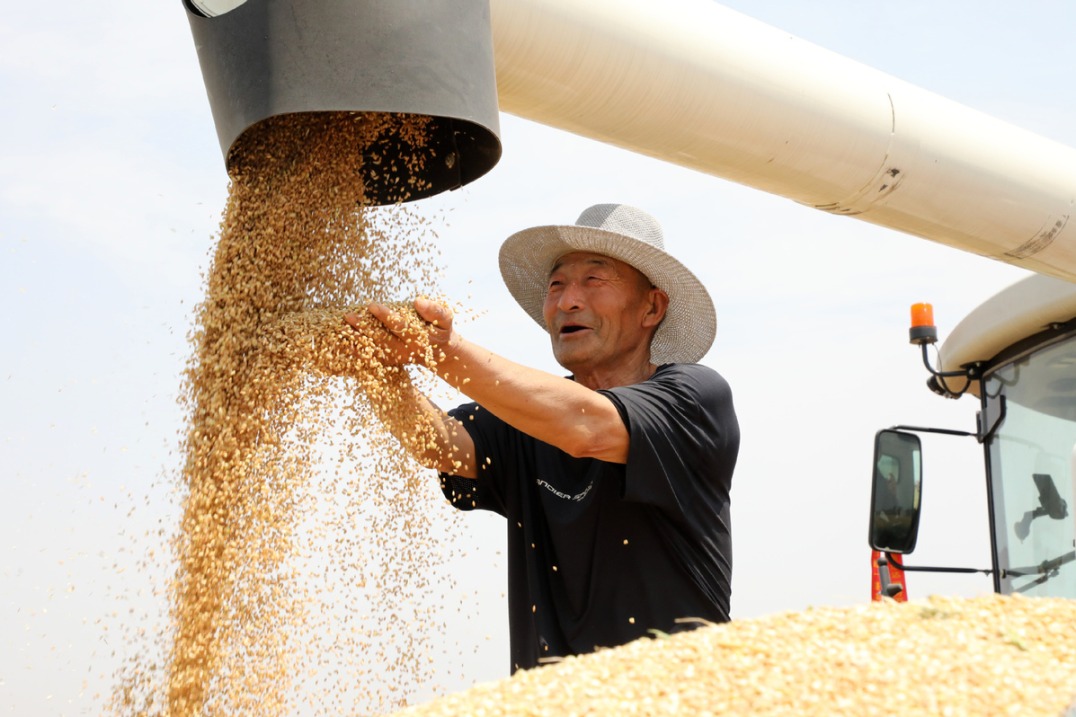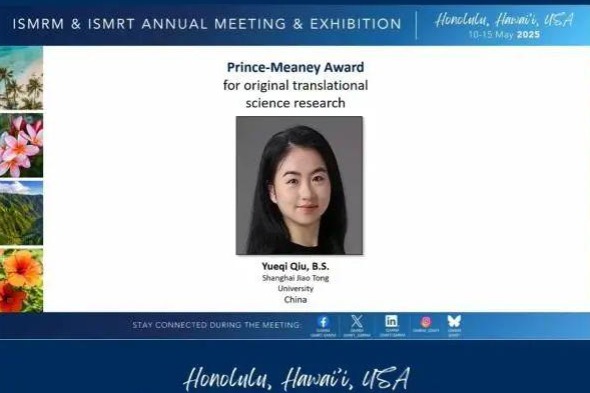Selling arms to Taiwan, US still breaking promises
White House continues to violate agreements with Chinese govt

Editor's Note: The Taiwan question is a key focus for China and the international community. China Daily is publishing a series of reports to track hot Taiwan-related topics and address disinformation from the Democratic Progressive Party administration.
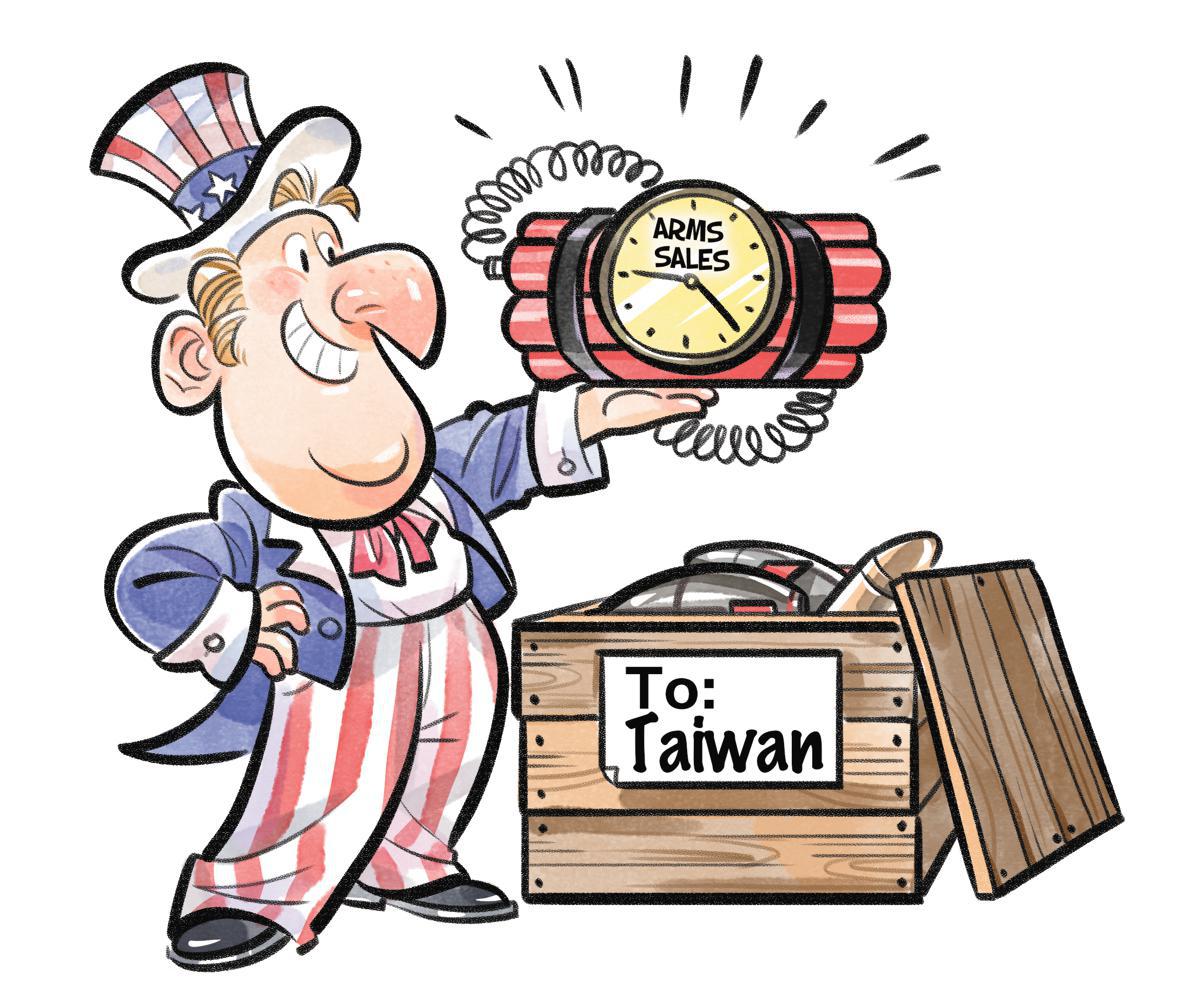
With less than a month before United States President Joe Biden leaves the White House, his administration announced another round of military aid and arms sales to China's Taiwan region over the weekend, totaling more than $800 million.
It was the 19th round of such arms sales and assistance to Taiwan during Biden's term in office.
Shortly afterward, China's Foreign Ministry and Defense Ministry expressed strong dissatisfaction and lodged solemn representations with the US.
They emphasized that the Taiwan question is at the very core of China's core interests and is the first uncrossable red line in China-US relations.
Washington, as a major power, has broken the solemn promises it made over 40 years ago, over and over again.
Historic commitments
In 1972, during former US president Richard Nixon's visit to China, both sides issued the Shanghai Communique, stating clearly: "The United States acknowledges that all Chinese on either side of the Taiwan Strait maintain there is but one China and that Taiwan is a part of China. The United States Government does not challenge that position."
In December 1978, the US government accepted the three principles proposed by the Chinese government as prerequisites for establishing diplomatic ties: the US must sever "diplomatic relations" with the Taiwan regional authorities, abrogate the "Mutual Defense Treaty" and withdraw US forces from the island.
On Jan 1, 1979, China and the US officially established diplomatic relations. The Joint Communique on the Establishment of Diplomatic Relations which was issued in late 1978 stated: "The United States of America recognizes the Government of the People's Republic of China as the sole legal Government of China. Within this context, the people of the United States will maintain cultural, commercial, and other unofficial relations with the people of Taiwan"; "The Government of the United States of America acknowledges the Chinese position that there is but one China and Taiwan is part of China."
With that, the normalization of China-US ties was realized.
However, just three months after diplomatic relations began, the US Congress passed the so-called Taiwan Relations Act, which was then signed into law by former US president Jimmy Carter. Under this act, the US government continued selling arms to Taiwan and intervening in China's internal affairs, hindering the island's reunification with the Chinese mainland.
To address the issue of US arms sales to Taiwan, China and the US reached an agreement through negotiations and issued their third joint communique on Aug 17, 1982, commonly referred to as the August 17 Communique.
In it, the US government stated: "It does not seek to carry out a long-term policy of arms sales to Taiwan, that its arms sales to Taiwan will not exceed, either in qualitative or in quantitative terms, the level of those supplied in recent years since the establishment of diplomatic relations between the United States and China, and that it intends gradually to reduce its sale of arms to Taiwan, leading, over a period of time, to a final resolution."
However, according to US government cables declassified in 2020, the US also presented Taiwan regional authorities with the so-called Six Assurances in 1982, which included: "The United States has not agreed to set a date for ending arms sales to Taiwan."
Say one thing, do another
The three Sino-US joint communiques have formed the political foundation of China-US relations, with the core spirit of the one-China principle.
Yet the commitments the US made in these communiques have been contradicted with the "Taiwan Relations Act" and the "Six Assurances", highlighting Washington's double standards and undermining its strategic credibility, said Zhong Houtao, an expert specializing in Taiwan studies at the University of International Relations in Beijing.
For more than 40 years, the scale and sophistication of US arms sales to Taiwan have continued to increase.
Public data shows that, in this period, the US has provided over 120 arms sales to the island, exceeding $70 billion in total value by 2022.
In 2019, the Trump administration decided to sell 66 fighter jets and 75 engines to Taiwan, worth $8 billion — marking the single largest arms sale to the region.
In 2022, then-Foreign Ministry spokesman Wang Wenbin said at a news conference that the "Taiwan Relations Act" and the "Six Assurances" were unilaterally concocted by the US and were contrary to the principles of the three Sino-US joint communiques and the basic norms of international relations, noting that China firmly opposed them from the very beginning.
Hegemony and interests
Zhao Xiaozhuo, a former researcher with the People's Liberation Army, said the US' unilateral imposition of the "Taiwan Relations Act" and "Six Assurances" fully reflect its hegemonic practice of long-arm jurisdiction.
He noted that US policy on Taiwan has always been tied to its overall definition of China-US relations, which it has now defined as strategic competition.
"Taiwan is a unique card in that competition — no other can replace it," he said. "When US-China relations are good, the Taiwan card is set aside. When ties deteriorate, Taiwan becomes a major lever for the US."
In addition, Zhong said that continued US arms sales to Taiwan aim to maintain American influence in the Taiwan Strait, preserve US power in the region and serve the interests of its domestic military-industrial complex.
Yet it is not an equal exchange, but rather "the US dominating while Taiwan is subservient", he said.
"In arms deals between US and the island, Taiwan has no real say in what is sold, what isn't, when it's sold or how it's sold," Zhong said.
According to media reports, this year US Government Accountability Office accused Raytheon, a subsidiary of the US-based defense contractor RTX, of fraud in selling expensive weapons to Taiwan, which procured the Patriot missile system in 2013 and radar systems in 2017 from that company.
In response, at a news conference in October, Chinese Defense Ministry spokesman Wu Qian said these revelations are just "the tip of the iceberg".
"In recent years, Taiwan's Democratic Progressive Party authorities have done everything possible to curry favor with their 'American master', which only wasted the hard-earned money of people in Taiwan. It is evident that what they bought are pieces of junk that only benefited corrupted officials and arms dealers. There is growing opposition and dissatisfaction from the local people," Wu said.
He said "sky-high prices and obsolete functions" are two hallmarks of US arms sales to Taiwan.
"In the eyes of the Americans, only American interests matter. 'Taiwan independence' leads nowhere, and external forces are unreliable. Those who seek to 'rely on the US to pursue independence' will meet their own destruction," the spokesman said.
Earlier this month, China's Foreign Ministry announced countermeasures against 13 US defense firms and their executives involved in the US government's recent arms sales to Taiwan.
It was the eighth time this year that China has taken such measures against the US over arms sales to the region.
Zhong noted that continued US arms sales to Taiwan send a wrong signal to Taiwan separatist forces and pose a significant threat to the broader China-US relationship.
"This also carries major risks for peace and stability across the Asia-Pacific region and around the globe," he said.
jiangchenglong@chinadaily.com.cn
- Xi, Myanmar leader exchange congratulations on 75th anniversary of diplomatic ties
- Why Guangdong-Hong Kong-Macao Greater Bay Area is a must-watch for global businesses
- Hefei mobilizes public to build spiritual civilization
- Experts urge stronger civil aviation legislation, cultivation of legal talents
- Henry C. Lee praises women's rising role in forensic science
- China's national college entrance exam begins
















